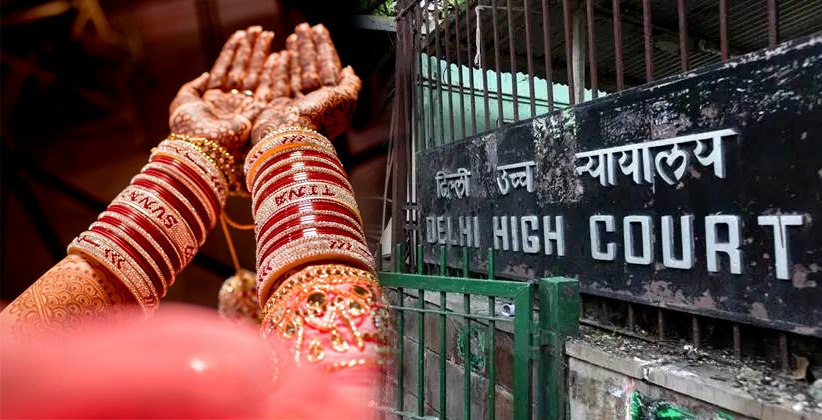The division bench of justices Hima Kohli and Asha Menon was hearing the Appellant- husband being aggrieved by the order by the judgment dated 30th August 2019 of the Family Court, Dwarka. The petition was dismissed by the court who was seeking dissolution of marriage with the Respondent No. 1 under section 13(1)(i) and (ia) of the Hindu Marriage Act, 1955. The Delhi High Court observed that such conduct of the respondent-wife of being interested in remaining in her room or not showing initiative in doing household work can be by no stretch of imagination be described as cruel behavior and that too upon the appellant/husband.
The court further stated that with respect to the physical relationship between the Appellant-husband and Respondent-wife except for initial reluctance to have any physical relationship with the Appellant-husband there was no reiteration of any such circumstances further. Therefore, this ground cannot be made available to the Appellant-husband to claim cruelty.
The court noted that cruelty amounts to different to every different individual and differs from person to person. This has been the subject matter of several decisions of the SC.
The Affidavit filed by the Appellant-husband stated several acts of cruelty by the Respondent-wife and it was difficult for the court that what impacted him as cruelty. The judgment narrates that the accused the Respondent No. 1-wife of having been (i) rude and of a cruel behavior immediately after the marriage; (ii) of her picking up quarrels with every family members on trivial matters; (iii) of her refusal to have any physical relations with him immediately after the marriage; (iv) of locking herself in the room to be requested several times to come and participate in the muh dikhai ceremony; (v) of looking nervous and unhappy at the marriage reception on 1st December 2012; (vi) of keeping herself to her room, showing a disinclination to do any household work or cook food.
The Court said that there were no cruel acts seen by the court and none of them would tantamount to cruel conduct. The bench further stated that it is the duty of the husbands family to make the bride feel at home as she is new and hesitant about the people and environment around her.
A serious allegation was made by the Appellant-husband against the Respondent-wife that she was living an adulterous life, the documents submitted by the Appellant-husband for proof were certain documents which reveal that the Respondent-wife and the brother of her brother-in-law (Respondent No. 2) had filed an application before the SDM Hapur on 23rd December 2011 expressing their intention to get married. However, their marriage was not conducted due to opposition raised by the brothers of the two Respondents. And the marriage between the Appellant-husband and Respondent-wife took place exactly a year later on 29th November 2012. Though the appellant-husband claimed that he was not told about the previous affair of the respondents, the Respondent No. 1-wife during her cross-examination in a response to a query stated unequivocally that she had disclosed everything to the Appellant-husband prior to her marriage with him. She denied the suggestion that prior to this marriage; she had entered into a live-in relationship with the Respondent No. 2. No witnesses were examined by the Appellant-husband to substantiate this allegation, which was introduced for the first time during the cross-examination of the Respondent No. 1-wife Said the bench.
Moreover, the bench said that adultery could have been committed only after marriage and there was no record of anything like that. So allegation of adultery on the ground that before the marriage of the parties, the respondent had stayed together is completely meaningless.
It is thus clear that the learned Family Court had arrived at the right conclusion including observing that the accusations of adultery heaped by the Appellant-husband on the Respondent-wife are without any proof whatsoever of the respondents living in adultery and having an illicit relationship either before or post the marriage of the parties and the Respondent No. 1-wife had treated the Appellant-husband with any cruelty, held the bench.
However, the court appreciated the fact that the Appellant-husband had reconciled with the Respondent No.1-wife and had hoped for a bright future and had saved his matrimonial life.
The High Court finally said while dismissing the appeal In other words, whatever misconduct that the appellant/husband had noticed and alleged, as delineated hereinabove, stood condoned by him, leaving him no scope for him to have filed the petition before the court for dissolution of the marriage between the parties either on the grounds of cruelty or adultery.






